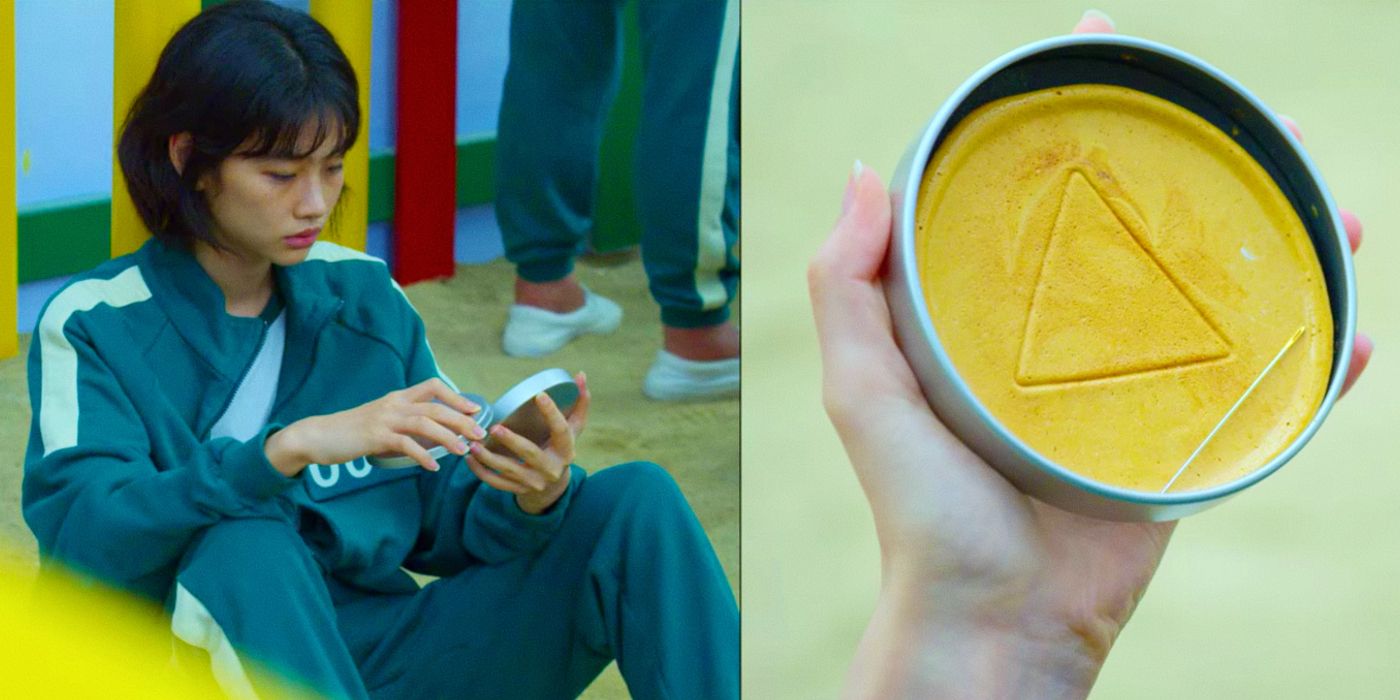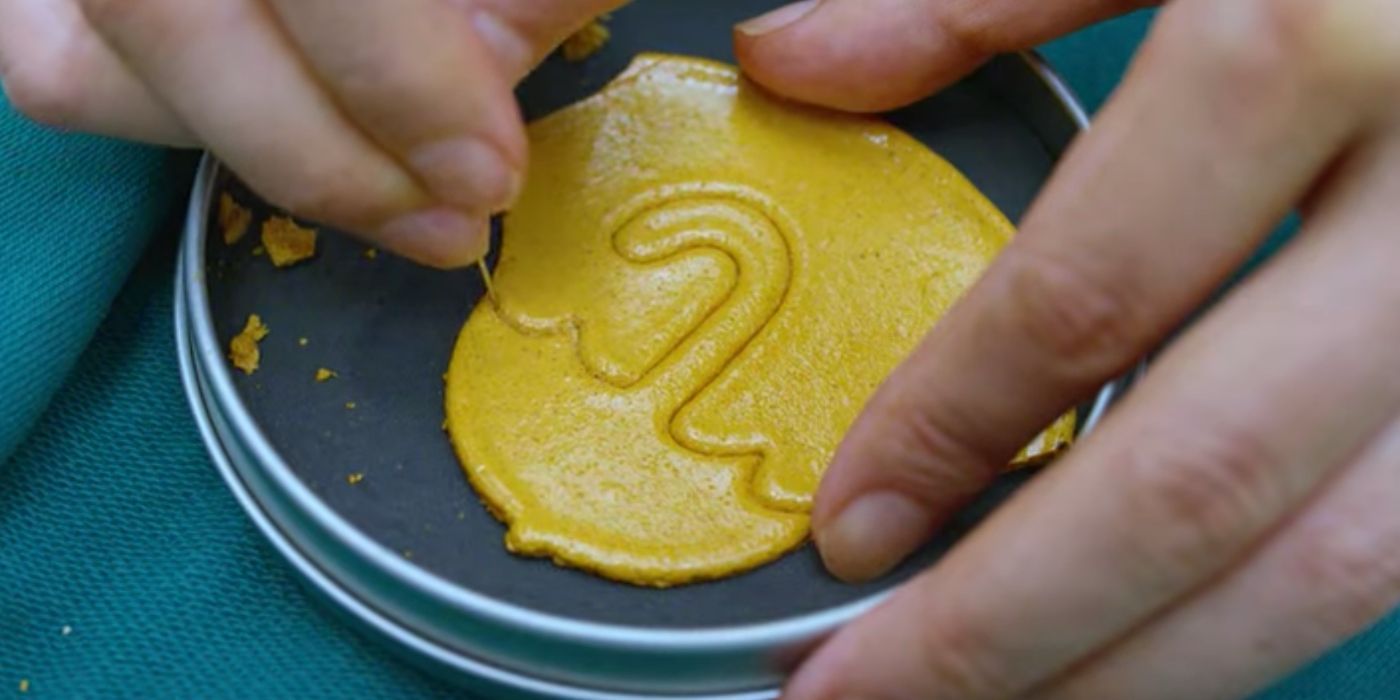Warning: Contains SPOILERS for Squid Game
Squid Game actress, Jung Ho-yeon, says that she wasn't able to complete the "honeycomb challenge" in real life, although her character in the show, Kang Sae-byeok, is able to do so. This challenge was one of many that feature in Netflix's latest South Korean thriller series from writer-director, Hwang Dong-hyuk. The show unexpectedly exploded in popularity worldwide since its release last month, with Netflix co-CEO Ted Sarandos recently announcing that Squid Game is on track to be their most-watched program ever.
Squid Game follows several down-on-their-luck characters as they compete in a series of death games to win the grand prize of ₩45.6 billion KRW (approximately $38.7 million USD). Each of the challenges is inspired by childhood games that are common in South Korea, one of which is "seoltang bbopki" – "sugar picking" – which the show's localized subtitles translate as "sugar honeycombs." In this game, contestants must carefully carve a shape out of brittle sugar sheets called "dalgona." Any damage to the engraved shape immediately results in failure and subsequently, death. Although Sae-byeok is able to complete the challenge with relative ease in the show, Jung was not quite as dextrous as her fictional counterpart in Squid Game.
In a recent TikTok clip from TIME, Jung revealed that Netflix Korea made her do the dalgona challenge in real life – twice. However, she sheepishly admits that "they gave me two opportunities, but I failed all times." Check out the actress' full comments below:
Actually Netflix Korea [...] made me do [the dalgona challenge], but I failed. Two times. They gave me two opportunities but I failed all times.
Click here to view the original video on Tik Tok.
The appearance of "bbopki" in Squid Game has sparked worldwide interest in the nostalgic South Korean childhood treat. However, the show's aversion to calling the treat by its actual Korean name is indicative of the larger localization issues that some have criticized Squid Game's subtitles for. While "sugar honeycomb" isn't necessarily an outright inaccurate name for the candy, the localization's refusal to use certain Korean words erases the cultural specificities that are required to accurately portray the writer's intents. Using the word "sugar honeycomb" makes the candy more familiar to English-speaking audiences, but it does so at the expense of the specific nostalgic connotation that bbopki has in South Korean society.
Although these issues persist within the show's subtitles, those involved with the show – like Jung Ho-yeon – are fortunately unafraid to use indigenous words to describe various aspects of the series. As non-English shows and films become more common in English-speaking markets, localizers should invest more time into ensuring that translations are as accurate and as reflective of the original culture as possible. Hopefully the controversies behind Squid Game's subtitles will be a step in that direction.
Source: TIME


